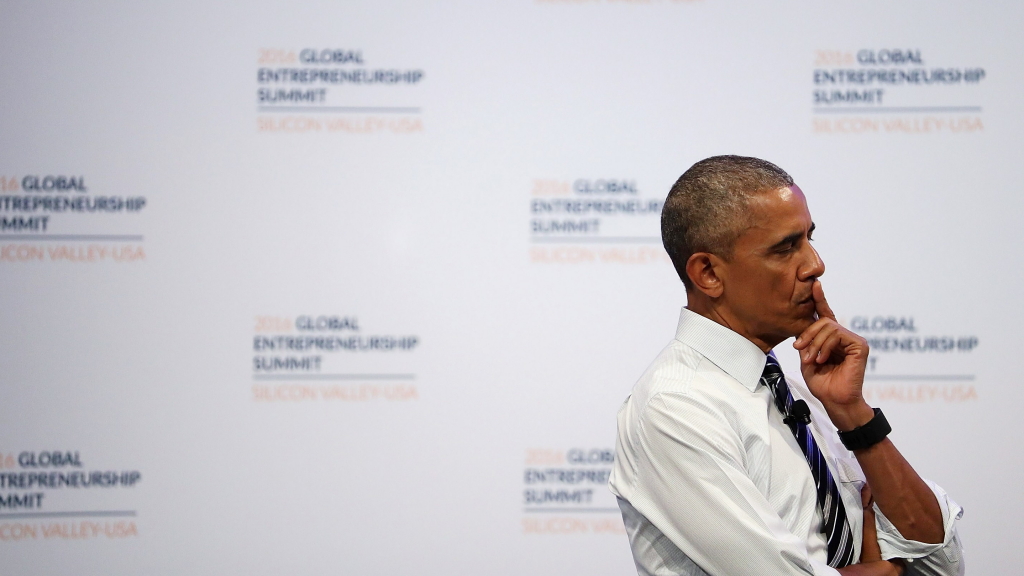
A Special Relationship Cools Down
Reactions in the U.S. can be summarized with one question: What does the decision in Great Britain mean for America? The politically left-wing activist Van Jones believes that, in this election year in the U.S., a Brexit will above all strengthen the possible presidential candidacy of the Republicans. “It helps Donald Trump and hurts people like me who believe that immigration is right.”* Brexit is a bad sign for all who don’t want to see Trump in the White House, Jones said.
Many Americans see it that way. And Trump himself sees it that way. People want their countries, their currencies, their borders back, said the billionaire, who was staying in Scotland on a business trip. “I have a lot of friends living in Germany that have always been very proud Germans to a level that you wouldn't believe … Now, those same people, some of them are [saying they're leaving Germany, they're moving. They never even thought of moving but now they're] thinking about moving because of the tremendous influx of people.” You can see what’s wrong in Germany, that it’s a real problem, the presidential candidate lectured.
’We Must Not Underestimate the General Mood’
Diplomat Richard Haass of the Council on Foreign Relations in New York also sees parallels between Brexit supporters and Trump voters. His recommendation is that politicians must be more attentive. “We must not underestimate the general mood.”** That means above all, “not to underestimate the degree of alienation a lot of citizens feel from their institutions and their elected politicians. Not to underestimate the anxiety that is associated with globalization, with technological change, with the reality or potential for job loss.”
That’s also the explanation President Obama is offering: The decision for a Brexit is a reaction to changes and challenges that come through so-called globalization. At the same time, Obama insists that although the U.K.’s relationship with the EU will change, everything else will remain the same. “And our shared values, including our commitment to democracy and pluralism and opportunity for all people in a globalized world. That will continue to unite all of us,” said the president.
The US Must Dedicate Itself to Other Nations
That means that the special partnership between the U.S. and Great Britain remains unchanged. NATO cooperation has suffered no damage. But is that realistic? Diplomat Haass believes that Brexit will also have consequences for the U.S. government. “Lastly, it’s bad for the United States. The U.K. has been one of this country’s most important partners. And again, it will be less willing and able to play that role,” said Haass. “[T]he special relationship will be that much less special. The United States will have no alternative but to increasingly turn to and rely on other countries.”
Obama has spoken by phone with Federal Chancellor Angela Merkel. Both agreed that the U.S. and EU will cooperate more closely in the coming weeks and months.
*Editor’s Note: Although accurately translated, this quote could not be independently verified.
** Translator's Note: This is not an exact quote, see this source of all the quotes by Haass, which are accurate.


